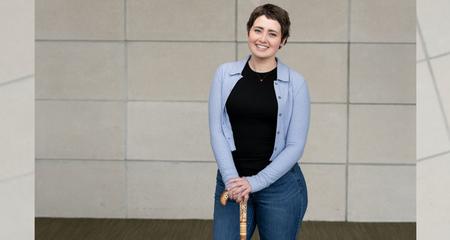The staff of the Reproductive Medicine Center believe in helping couples through technology, teamwork and compassion. In our efforts to help couples achieve success in creating a family, we are aware that infertility treatments have been criticized for creating pregnancies of high order multiple gestations (triplets or more).
Safe Care for Mothers and Babies
Pregnancies of twins and triplets put mothers and babies at risk for serious health problems. The mothers are at risk for preeclampsia, premature labor requiring prolonged bed rest or hospitalization, gestational diabetes, anemia and placental problems. The babies are at risk for complications such as preterm birth, respiratory distress syndrome, intracranial hemorrhage, cerebral palsy, blindness and death.
Our goal is always to provide the safest care possible to our patients, while helping them achieve a delivery of a healthy baby. We have been striving to reduce the number of twin and triplet pregnancies resulting from in vitro fertilization.
To reduce the number twin and triplet pregnancies our clinic has a 45.1% single embryo transfer rate for women under the age of 35. This is well above the national average of 11.7 (SART National Average for 2011). We have continued to maintain a high delivery rate of 39.6 percent per transfer attempt. Having a single embryo transfer significantly reduces the chance that a high risk twin or triplet pregnancy will result, thereby reducing the risk to mother and baby.
At the Reproductive Medicine Center, we take a conservative approach. We have achieved high levels of success for our in vitro fertilization (IVF) couples, while limiting the number of multiple gestations.
Efficient, Cost-Effective Care
At the Reproductive Medicine Center, we are aware that most health insurance plans do not cover infertility services for our patients. To help minimize the out-of-pocket expenses for couples, we generally do not require repeat testing unless the test results from earlier testing were ambiguous or outdated. Patients are encouraged to provide prior medical records, so the physician can review results of prior testing to avoid repeating tests. Our reproductive endocrinologists and fellowship-trained urologist recommend testing that is tailored to the individual.
Patients who are pursuing treatment at the Reproductive Medicine Center are required to have limited screening before pursuing IVF or insemination. General health screening will be recommended for all patients including but not limited to infectious disease screening for HIV & hepatitis, thyroid studies, and basic hormone function tests. Most of these tests are covered by insurance regardless of whether the patient has infertility coverage or not. Recommended testing may be declined by the patient after proper informed consent.
The Reproductive Medicine Center has attempted to keep the cost of our therapies as low as possible by making the fee for IVF services below the market average. A usual and customary cycle of standard IVF costs $12,000 to $13,000 (excluding stimulation medications).
More Options for Patients
A couple’s decision to have a child is a very personal choice. When a couple needs to seek the help of a fertility specialist, the Reproductive Medicine Center believes the couple’s desires should dictate the care they receive. Our physicians create a plan of care and provide recommendations to the couple; it is ultimately the couple’s decision as to which therapies they wish to pursue.
Sometimes couples are faced with very difficult decisions about what is most important to them. Some couples believe that being genetically related to the child is critical while others believe that experiencing a pregnancy and getting an opportunity to parent a child is more important than genetics. We will present all possible options to each couple but the decision on what is acceptable always remains with the couple.
When the decision is made to use donor eggs, the age of the donor is the most important factor for success.To optimize egg quality, the Reproductive Medicine Center only accepts women age 34 or under to donate eggs through our egg donation program. Most patients who would like to use donated eggs are older or have premature ovarian failure. The increase in success rate with using donated eggs instead of a woman’s own eggs when she is beyond age 37 can be seen in the SART National Statistics.
Although the majority of couples who seek treatment through the Reproductive Medicine Center are married, the clinic does not discriminate according to marital status, sexual orientation, race, ethnicity or income.
Visit the website for the Society of Assisted Reproductive Technology for more reports on success rates for in vitro fertilization.
Quality Data
Read more about Froedtert & the Medical College of Wisconsin quality of care.
Infertility Frequently Asked Questions
-
What causes infertility?
In women, infertility may be caused by ovulation disorders, blocked fallopian tubes, endometriosis, birth defects in the reproductive organs, or it may be completely unexplained. In men, common causes are abnormal sperm production or genetic disease.
-
When should a couple be evaluated for fertility problems?
In general, a couple should seek help when:
- They have been attempting pregnancy regularly (every month) for one year and the woman is under 35 years of age
- They have been attempting pregnancy regularly for six months and the woman is age 35 years or older
- Either partner has a known defect of the reproductive tract (they should seek treatment with a fertility specialist)
- Whenever they are concerned about their inability to conceive
-
What factors affect female fertility?
Factors that affect female fertility include:
- Smoking — research shows that smoking is harmful to a woman’s ovaries. Nicotine and other chemicals interfere with hormones that affect the release of healthy eggs. While this damage is irreversible, stopping smoking will prevent further damage.
- Weight — weighing too much or too little may affect a woman’s hormone levels, which causes irregular menstrual cycles.
- Sexually Transmitted Infections (STI) — common STIs that can cause infertility include chlamydia, gonorrhea, syphilis, HIV, genital warts, trichomonas and genital herpes. These diseases often display few, if any, symptoms.
- Age — fertility decreases with age. A woman is born with all the eggs she will ever have and this number steadily declines over time. As a woman ages, the quality of her eggs declines as well. Every woman’s body ages at a different rate.
-
What lifestyle activities may affect male fertility?
Lifestyle activities that may affect male fertility include the use of hot tubs and substance abuse, specifically marijuana. The type of undergarments that a man wears does not affect his fertility. Activities such as bicycle riding, motorcycle riding and running do not appear to affect male fertility. High amounts of alcohol use may have some affect. There is less information regarding the role of cigarette smoking on male fertility. Further information is available in our office.
-
If we are trying to conceive, how often should we try?
If a couple is having unprotected intercourse at least two times per week, this appears to be the minimum amount needed. Increasing frequency to four or five times per week may actually be detrimental in that sperm counts may be lowered.
-
How can we increase our chances of conceiving?
It is important that couples avoid the use of any types of jellies, foams or lubricants, which can slow the motility or movement of sperm.
Often couples are concerned that stress may affect fertility. The role of stress in infertility is still unclear. However, only in cases of severe stress where the woman loses her ability to have normal menstrual cycles does stress appear to have a significant impact.
Couples are often times interested in alternative remedies. The Reproductive Medicine Centersupports regimens involving yoga, acupuncture, biofeedback and hypnosis. We advise against the use of herbal remedies, some of which may actually be counterproductive for normal hormonal function for women. Certain herbal remedies may, in fact, impose medical dangers for women who undergo surgery.
We strongly recommend that women take prenatal vitamins prior to attempting pregnancy.
-
When is the best time to conceive during a month?
You may want to use an ovulation detection kit, which can be purchased at a pharmacy. Please read the test kit insert for usage instructions. The first day of true menstrual bleeding (not spotting) is cycle day 1.
You may begin testing on day 11 of your cycle. Testing is best done in the early afternoon to evening. If you are using the test to arrange for an insemination with the clinic, you should test by the early afternoon so that you can contact the clinic during office hours to arrange your insemination for the next day.
When using the test to time intercourse and a positive ovulation surge is detected, plan to have intercourse that night and the following night. If your kits are turning positive before menstrual cycle day 9 or after menstrual cycle day 17, this may indicate your menstrual cycles are not normal and could be a potential reason for your infertility.
-
What type of testing will be performed to begin fertility treatment?
Female evaluation — your physician will order specific tests to measure hormone levels on specific days of your menstrual cycle. Any hormone levels that are abnormal may give answers to why pregnancy has not been achieved.
Tests include:
- Follicle Stimulating Hormone (FSH)
- Estradiol
- Thyroid Stimulation Hormone (TSH) — tests your thyroid function
- Prolactin
- OB panel — includes tests to screen for immunity to specific diseases that can be fatal to a baby, such as syphilis, rubella, and varicella
- Cystic Fibrosis — The American Academy of Obstetricians and Gynecologists recommends that the carrier screening test be available to all couples who are planning pregnancy or are pregnant
- Uterine and/or tubal evaluation — your physician will determine which test needs to be done
- Hysterosonogram — an ultrasound test to evaluate the uterus
- Hysterosalpingogram (HSG) — a radiology test in which dye is injected and observed to evaluate the Fallopian tubes as well as the uterine cavity.
Male evaluation — the physician may order a semen analysis depending upon your specific case. Semen should be collected after two to seven days of no ejaculation. A container is provided by our clinic, and the semen is collected in private rooms at the clinic. Please call to schedule this appointment.
-
Do you offer Day 5 or blastocyst transfer?
The Reproductive Medicine Center offers early and late forms of embryo transfer. Specifically, we have the ability to transfer embryos on the second, third, fourth, fifth and sixth day of growth. We discuss with each patient the decision on which day to transfer the embryos.
The center has had equal success in all embryo transfers. We specifically reserve our Day 5 and Day 6 embryo transfers for couples undergoing preimplantation genetic diagnosis. We also use Day 5 and Day 6 embryo transfers for couples who have a large number of high-quality embryos available for selection. There are specific circumstances in which we offer Day 5 or Day 6 culture.
Most couples have very high success with Day 3 embryo transfer, as well. We treat patients as individuals and try to determine the best means and type of embryo transfer for them.
- What medications will I need to take?
Clinic Frequently Asked Questions
-
How are the costs of treatment handled?
The cost of treatment is handled depending on the health insurance of the individual or couple seen in the Reproductive Medicine Center, an off-campus department of Froedtert Hospital. (As an off-campus hospital department of Froedtert Hospital, patients will be billed accordingly.) In cases where health insurance does not cover the cost of fertility treatments, the individual or couple is asked to pay for treatment in advance. The clinic accepts personal checks and most major credit cards. As a general rule, the estimated cost of treatments is paid before any therapy begins. Graduated payments, as a rule, are not accepted.
-
Is a referral needed?
It is the responsibility of the individual or couple to check with their health insurance provider to see if a referral is needed and to obtain the referral before an appointment. If there are questions about the need for a referral, it is important to contact the insurance provider first. Because of the wide variety of insurance plans, our staff may not always be able to identify each case in which a referral is needed.
-
How are appointments handled?
Patients may make appointments by calling 414-777-7700. If you need to see one of our specialists before your appointment, please have your primary care physician contact our physicians directly, and we will make every effort to see you for earlier appointments.
-
What preparations are needed for my appointment?
Individuals and couples are asked to bring all medical records, ultrasounds scans, X-rays and other tests that have been preformed in relation to their fertility or unique medical problems. We strongly recommend that individuals or couples physically carry their medical records and images or photographs with them for their appointment or fax to 262-253-9221.
Also, for infertile couples, the male partner should be prepared to provide a semen sample for analysis. We realize that most patients have had one or more semen analyses elsewhere. However, there are many variables at outside labs that may contribute to less than accurate results. Also, because sperm counts fluctuate daily, many sperm analyses are needed to get a sense of a man’s baseline parameters.
-
How will I learn about my test results?
We make every effort to contact our patients with abnormal test results. Patients have the right to contact our clinic to learn about any of their results, whether they are normal or abnormal.
For most test results, patients should allow up to two weeks to get results. Because many test results are sent out to reference laboratories, there may be a delay in obtaining those results. In many cases, a letter will also be sent to patients regarding their test results, stating that the test results are all acceptable.
If patients have specific questions regarding their test results, they have the right to contact our office at 262-253-9220 to learn about these results. It is important that patients understand that, because of the large numbers of individuals that we work with, the ability to respond to a patient request for test results may be delayed for one or two days. If there is a matter of urgent concern, the individual or couple is welcome to tell us that when they contact our office, and we will make every effort to respond immediately.
-
What if I have more questions?
It is important that individuals and couples know they have the right to contact the clinic with questions. The Reproductive Medicine Center is open seven days a week. Our hours are 8:00 am to about 4:30 pm, Monday through Friday. On Saturdays and Sundays and most holidays, our office hours are 8 to 11 am.
During office hours, all staff members try to make themselves available to respond to questions and concerns. Because of the volume of calls, however, a physician may not always be available. In this case, our nurses will respond to calls. However, if individuals or couples have specific concerns they feel must be addressed by the physician, they are welcome to leave a message with our nursing staff, and the physicians will make every effort to respond in a timely manor.
Our philosophy at the Reproductive Medicine Center is one of a team concept. Patients are encouraged to work with nurses, physicians, medical assistants and our laboratory staff. While the nurses handle most questions, individuals or couples may always speak to any member of our team regarding any concerns. Physicians will often return phone calls in the evening or on weekends because of busy schedules. To make it easy to reach patients, it’s suggested they leave many contact numbers (home, work and cell phone numbers). At times, the physicians will respond by e-mail; however this is not the most desired way to respond to questions that require an urgent reply.
-
How can I refill a prescription?
Prescriptions may be refilled by calling the Reproductive Medicine Center (262-253-9220) and asking to speak to a nurse. Patients are asked to leave their home, work and cell phone numbers if the nurses have questions about the prescription. Patients should also provide their pharmacy phone number when leaving a message for a nurse.
-
What about evening or weekend emergencies?
The Reproductive Medicine Center is open on Saturdays and Sundays. This allows us to address most concerns between 8 and 11 am. Clinic office hours are Monday through Friday, 8:00 am to 4:30 pm. In most cases, we can address urgent concerns or emergencies during those hours. During evening hours, please call 414-777-7700 to have a physician contacted.
Individuals and couples are asked to provide their questions and concerns early in the morning and leave voicemail messages. Due to the volume of calls, it may not be possible to respond immediately. Therefore, it is important to leave all contact phone numbers (home, work and cell phone). We do not recommend using e-mail for urgent issues.
-
Will I see a medical student or physician in training (intern or resident) when I come to the Reproductive Medicine Center?
The center is part of Froedtert & the Medical College of Wisconsin, an academic medical center. As such, medical students and residents are members of our team. Individuals and couples have the right to request that medical students/residents do not participate in their care. We will make every effort to honor those requests.
Please note that medical students/residents are never responsible for your care. If a medical student/resident is present during a procedure, the attending physician will always be in the room and actively involved in your care. There will never be large numbers of observers in a patient’s room during procedures. We respect every person’s right to privacy and are very sensitive to the very emotional side of fertility concerns. However, as a clinic, we believe in educating future generations of healthcare providers, and we provide a supportive environment for both patients and those who are learning.
-
What makes the Reproductive Medicine Center unique?
Physicians at the Reproductive Medicine Center believe it is important to be available for all ultrasounds, intrauterine inseminations, hysterosonograms (pelvic ultrasound exam) and hysterosalpingograms (a test to look for blockages in the Fallopian tubes), in addition to egg retrievals and embryo transfers. We have adopted this philosophy so that there will always be a physician to perform patient procedures and answer questions. We recognize that when couples invest their emotional and physical energy and money in an attempt to become pregnant, they greatly appreciate the opportunity to speak directly with the physicians about processes that may impact their success.
-
Why are fellowship training and board certification important?
Physicians who treat infertile individuals and/or couples may have several types of training. The average obstetrician/gynecologist receives four years of training in the field of obstetrics and gynecology and typically receives no more than two months of training in the area of infertility. This training in infertility is very limited and frequently focuses on the female with very little emphasis on male problems.
Physicians who are trained in the area of reproductive endocrinology and infertility typically receive two to three years of intensive training (a fellowship) in infertility and endocrinology. This gives them special expertise in this area. Physicians who undergo this type of specialty fellowship training are generally not responsible for routine obstetrics or gynecology care. Therefore, they have done a great deal of reading as well as research in infertility, and are experts in the most recent literature on treating and diagnosing infertile individuals or couples.
Once a physician has completed fellowship training, he or she becomes eligible for board certification. This is as important as the fellowship training. To achieve board certification, a physician must pass an examination administered by the American Board of Obstetrics and Gynecology in the subspecialty area of Reproductive Endocrinology and Infertility. This is one of the most rigorous examinations administered by the American Board of Obstetrics and Gynecology. Physicians who pass this examination are among an elite group, and those who complete fellowship training and become board certified are at the top of their field. These physicians are prepared to address a multitude of questions from an infertile individual or couple.
On the male side, there is urologic subspecialty training in the area of male infertility. This one- to two-year fellowship emphasizes male fertility, microsurgery, endocrinology and genetics. This fellowship also emphasizes reading, research and a clinical focus on male fertility issues. Urologists who undergo this fellowship training are uniquely qualified to treat a wide variety of male disorders that may contribute to male infertility.
More to Explore



